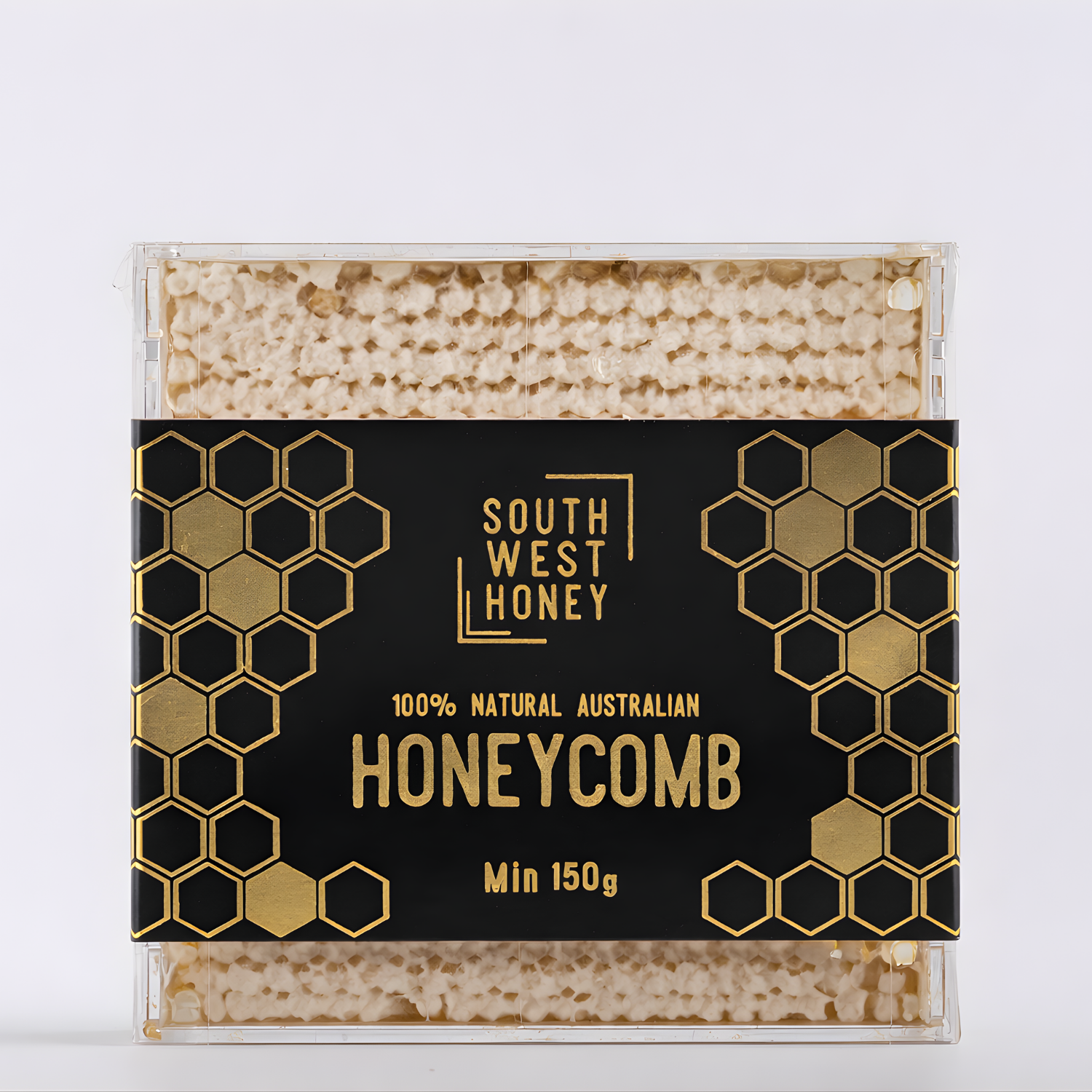-
100% pure, raw bee pollen
Protein-rich, naturally energising
No additives or processing
Sustainable harvest from native WA forests
-
Start with 1 teaspoon per day and gradually increase to 2 teaspoons. Sprinkle on:
Smoothies, acai bowls & juices
Yogurt, granola & cereal
Raw treats, cakes & energy balls
Tea infusions or atop toast with honey
Tip: For easier digestion, soak bee pollen in water or juice for 15–30 minutes before consuming.
-
Expect a mildly sweet and nutty crunch, with floral undertones. It adds a subtle texture and earthy richness to both sweet and savoury dishes.
-
Our bee pollen is gathered from the wild, biodiverse forests of Western Australia, including native flora such as Jarrah, Marri, and Wandoo trees. Our beekeepers move hives seasonally to follow floral blooms, ensuring maximum variety in nutrients and floral compounds.
-
At South West Honey, we put bee health first. Bee pollen is collected only when hives produce a surplus, ensuring bees retain enough for their own nourishment. This ethical approach supports long-term hive strength, pollination, and ecosystem health.
-
Size: 140g in A glass Jar
Ingredients: 100% Pure Western Australian Bee Pollen
Form: Dried granules
Packaging: Eco-friendly, resealable for freshness
Storage: Store in a cool, dry place out of direct sunlight
-
Ingredient: 100% bee pollen granules
Resealable eco pouch
Store in a cool, dry place out of sunlight
-
Item description
Biosecurity Notice:
Due to Tasmanian biosecurity regulations, we are unable to ship honeycomb, bee pollen, or beeswax products to Tasmania.
All liquid and creamed honey products can still be shipped Australia-wide, including Tasmania.
Click here for more information: Pollen from Western Australia at a Glance. Source: Rob Manning, Dept. of Agriculture and Food WA, 2008.











